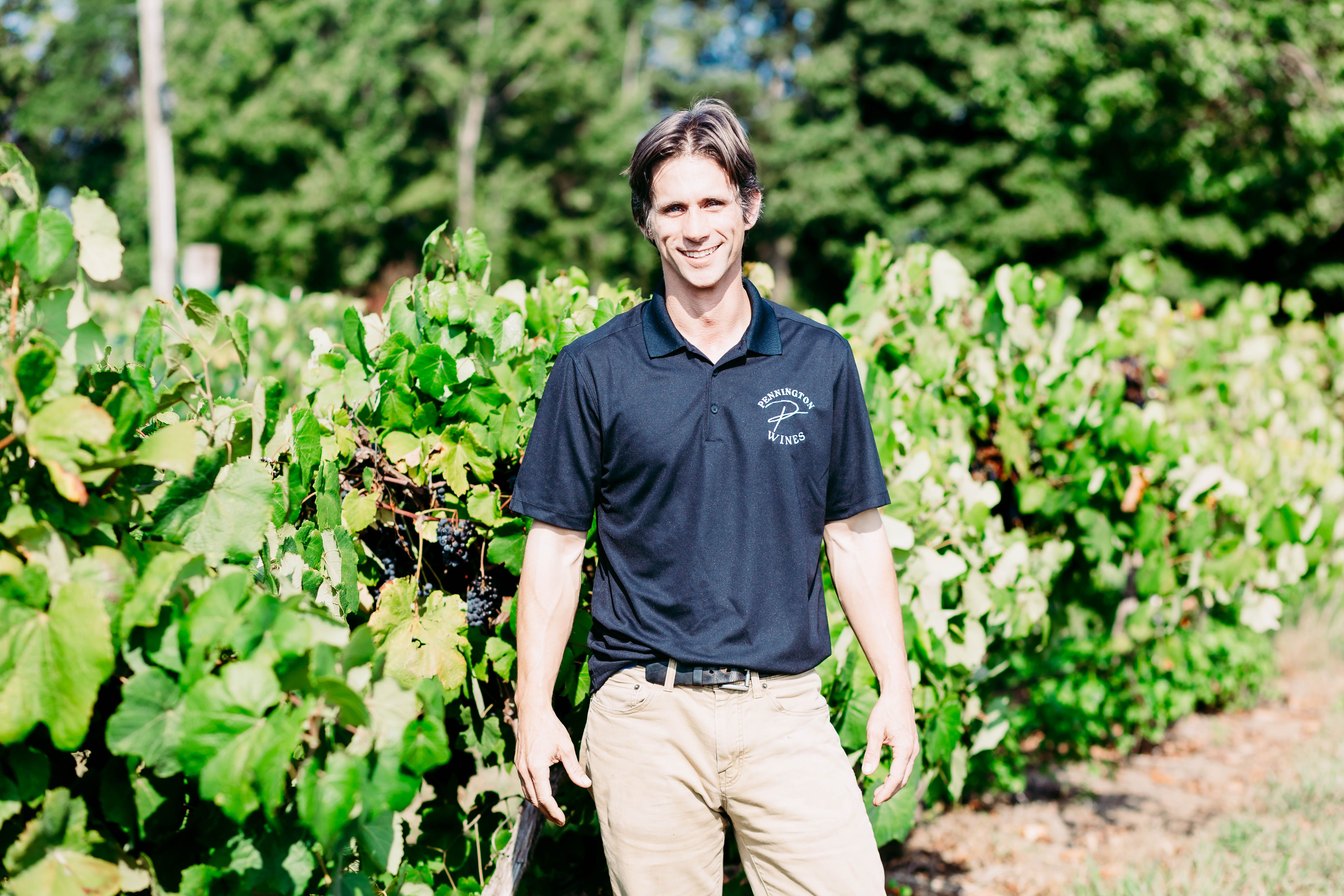Pennington Wines Partners with Mizzou on Irrigation Study


Harvest season is always a busy time for Pennington Wines near Carthage, Missouri. Grapes come off the vines in waves, starting with whites and moving to reds, each step carefully timed for flavor and quality. This year’s harvest also marks another step in an ongoing project with the University of Missouri’s Southwest Research Center near Mt. Vernon, Missouri, where research grapes are being grown and delivered to Pennington for winemaking. The study could change the way growers across the state think about water and wine.
The experiment compares traditional farming methods with high-tech tools to see how each affects the vines and, eventually, the wine.
Wine growers have long claimed that vines produce more concentrated flavors when they’re pushed to work harder. But owner Andrew Pennington has seen the downside. “A stressed vine can also make a dead vine,” he said.
At MU’s Southwest Research Center, plant scientist Dr. Jasmine Neupane is leading the study. On a single acre of Chambourcin grapes, half the vines are watered traditionally, relying on farmer observation and experience. The other half are monitored with soil sensors, leaf probes and even drones that measure vine stress from above.
After the grapes are harvested, Andrew and his team crush, ferment and age them in separate tanks, side by side, to see whether the different irrigation methods produce a noticeable difference in the finished wines.
The first vintage from the study was harvested in 2025. The wines will age for at least a year, maybe two, before anyone knows the results.
“It’s frustrating sometimes because grapes don’t read books,” Andrew joked. “They don’t follow the same rules from one year to the next. That’s why we need more than one year of data.
“It’s not just about what the data says in the lab,” he continued. “We’ll have sommeliers, winemakers and most importantly, our customers, taste the wines. In the end, they’re the ones who decide what belongs on their tables.”
When the wines are ready, Andrew plans to release them side by side.
“That’s the beauty of this project,” he said. “It’s not only science, it’s also about what people enjoy.
This partnership goes beyond taste. Missouri growers face unpredictable weather, which can swing from heavy rain to drought within the same season. Irrigation is expensive, and small vineyards in particular need to know whether they’re wasting water or using it wisely.
“We’re running a five-acre vineyard on a 400-foot well,” Andrew said. “We want to know if stressed vines are really fine, or if we need to water more carefully to protect both the vines and the quality of the wine.”
The irrigation study is just one part of a long partnership between Pennington Wines and MU. It started in 2012, when Andrew was just 21 years old. A biology student at Missouri Southern State University, he took a seasonal job at a local vineyard. By the end of the harvest, the owners offered him the role of head winemaker.
“I thought I knew everything, but I quickly realized I didn’t,” he said. That realization prompted him to pursue further training, and he joined the Viticulture, Enology, Science, and Technology Alliance, commonly known as VESTA.
VESTA is a regional program that combines online courses with hands-on fieldwork. It’s run by Missouri State University, nonprofits and industry partners. For Andrew, it meant access to both technical knowledge and practical experience.
Over the years, he has continued to work with MU on vineyard management projects and research.
“The university supports us, and we support them,” he said. “It’s about making Missouri wine better across the board.”
For him, MU represents not just research but also community.
“I’ve got friends making hundreds of thousands of gallons at St. James or Rocheport. I make about 2,000. But when we work with MU, we’re equals. We’re all learning together, and that’s powerful.”
Wine is an industry rooted in long-standing practices, and not everyone welcomes new tools.
“Sometimes you hear, ‘That’s not how we’ve always done it,’” he said. “But if you’re serious about growing and improving, you have to be willing to try something different. Just because you could do something one way doesn’t mean you should.”
The mix of old and new is what excites him most about this project. Vines are still closely monitored by experienced growers, but the new technology and data will propel Missouri wine forward.
“This kind of research helps small growers like us adapt quickly and make smarter choices. It’s not just about saving water, it’s about growing better fruit and making better wine.”
For Andrew, the bigger picture has always been about people. Competitions and medals matter, but he believes the most accurate measure of success comes when someone shares a bottle with family and friends.
“The real test is when someone takes our wine home, opens it around the table and enjoys it together. That tells me more than any award.”
If you’re curious to taste Pennington Wines, you don’t have to wait for the experiment’s results. You can find it at local retailers, catch them at community events or visit their vineyard, located southeast of Carthage, for one of their tasting events.

